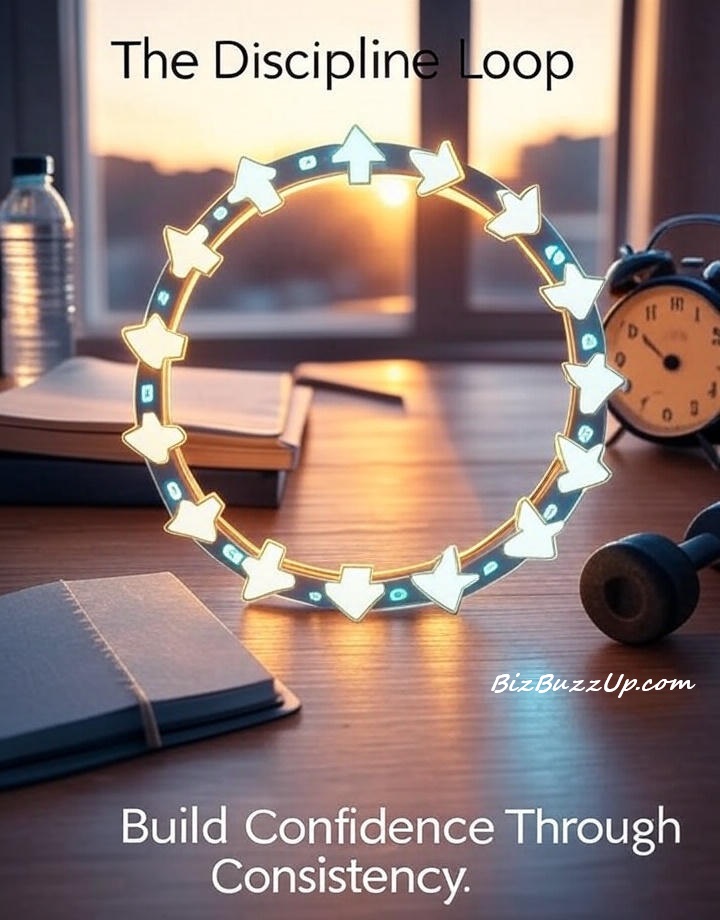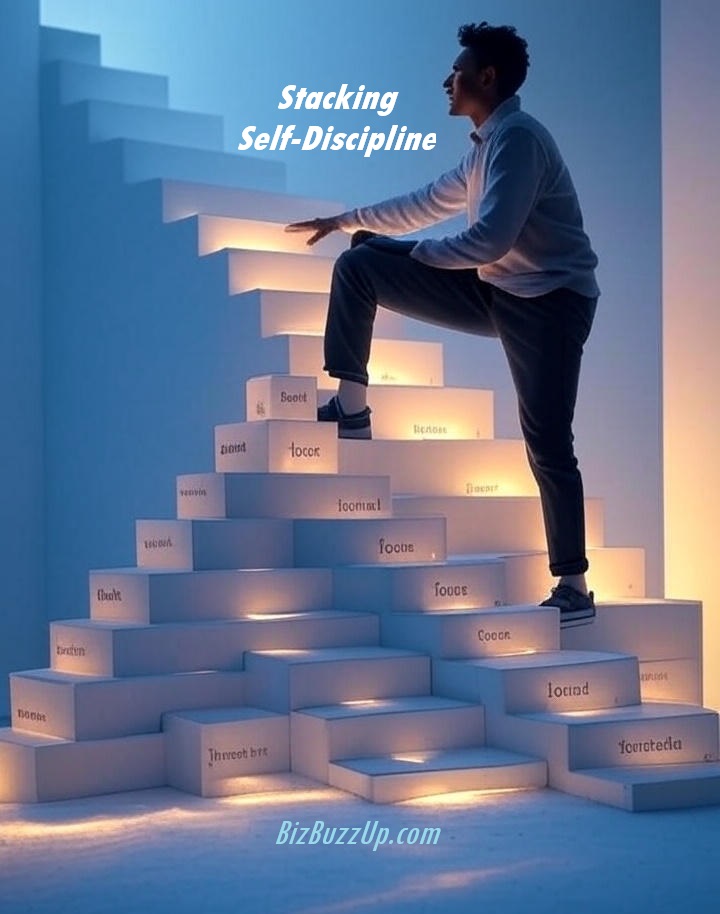
🔁 Falling Off Track Isn’t Failure — It’s Feedback
Discipline isn’t about being perfect. It’s about coming back — again and again. Every time you break a routine or miss a goal, you gain valuable data: what triggered the break, whether your system was too rigid, or if burnout played a role. These are signs, not reasons to quit. Think of them as feedback loops. As mentioned in The Discipline Loop, lasting discipline is less about staying perfect and more about always choosing to return.
Feeling stuck or out of sync with your habits?
Sometimes the best way to regain discipline is to hit reset — gently and mindfully. This short video by Lavendaire walks you through a calming 5-step reset ritual to refocus without pressure.
Dr. Jordan B. Peterson is a Canadian psychologist, professor, and best-selling author known for his work on personality, behavioral psychology, and personal responsibility. Through his lectures and books like 12 Rules for Life, he emphasizes the power of order, structure, and meaning as tools for building a disciplined and purposeful life. His insights often inspire individuals to take responsibility for their routines, habits, and mindset — especially when starting over.
🧠 Reconnect with Your “Why”
Before jumping back into action, pause. Ask yourself: why did I start this habit or goal? Is it still aligned with my values? Am I doing it for progress — or from pressure? Purpose fuels persistence. Reconnecting with your “why” provides sustainable energy and refocuses your goals with meaning.
🔨 Restart Small to Rebuild Momentum
When restarting, resist the urge to go all in. Start small — micro-actions are key. In this momentum guide, we explain how small wins help retrain your mind and reduce resistance. Instead of a full workout, do 10 minutes of movement. Instead of rewriting your week, plan just your morning. These actions restore rhythm and confidence one step at a time.
🔄 Forgive Yourself & Move Forward
Guilt slows down growth. Self-kindness accelerates it. In our burnout recovery article, we explore how sustainable self-discipline includes compassion. Studies even show that those who forgive themselves after failures are more likely to stick with goals. Be kind. You’re not behind — you’re just in the middle.
Still holding on to guilt from a setback?
Before you push forward, take a moment to process, forgive, and let go. This calming podcast episode reminds us that self-discipline isn’t about punishment — it’s about progress, healing, and self-trust.
About the host: A Cup Full is a self-help podcast designed to encourage emotional healing, personal growth, and inner peace. With a gentle, empowering tone, this episode guides listeners through the process of releasing shame and stepping into grace after failure.
🧰 Create a System for Your Comebacks
Setbacks are inevitable. Success depends on having a plan to bounce back. Build a “comeback system” like this:
- 🌧️ Accept the off-day without judgment
- 🔍 Reflect briefly: what caused it?
- 🧱 Choose one micro-action to restart
- 🧭 Reconnect with your why
- 🔁 Re-enter your loop with self-compassion
This system makes returning to discipline less overwhelming and more automatic. Comebacks don’t require perfection — just intention.
✅ Final Thoughts: Your Next Step Is the Most Powerful
You don’t need to wait to feel “ready.” The magic is in starting. Every person who succeeded fell off track at some point — what made them different is that they started again. Don’t aim for flawless discipline. Aim for returning with grace.
Your progress isn’t lost. It’s simply paused. Start again — and this time, take your wisdom with you.
📚 Bonus Resources to Go Further
❓ FAQ
Is it normal to lose discipline sometimes?
Yes. Everyone slips. The key is to bounce back with compassion, not criticism.
How do I restart after losing motivation?
Start small. One action. One day. One win. That’s how you regain rhythm and rebuild consistency.
What helps rebuild momentum?
Small wins create dopamine boosts and increase confidence. Start with easy habits you can achieve daily.
How can I avoid guilt when I mess up?
Replace guilt with curiosity. Ask what happened, then move forward with a smarter plan.
What is a comeback system?
A repeatable plan you can follow after setbacks — one that makes returning to routine easy and compassionate.
Keep building your habits the smart way — follow more insights at BizBuzzUp.com.








